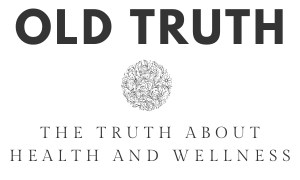In school, students often learn that drug addiction starts with gateway substances such as smoking tobacco or marijuana. Students learn that if they never start with seemingly less harmful substances, they won’t move on to harder substances like opioids. However, teaching students about gateway drugs is deceptive and leads to lifelong misunderstandings about the causes of addiction.
Addiction to drugs or alcohol is most often rooted in childhood trauma, which can range from abuse or neglect to the loss of a close loved one or significant traumatic event. Experiencing trauma at a young age often affects children in ways people do not see until they are older. When a child is unable to heal from the trauma, it’s not uncommon for them to abuse substances that work to alleviate the negative emotions they are experiencing. Without developing the appropriate coping skills, individuals will turn to drugs and alcohol to numb the mental and emotional pain they’re experiencing.
The past trauma could also be an ongoing condition, as opposed to an incident or event. Growing up in a household where drugs and alcohol were commonly abused creates a lifetime of trauma and an altered perception of reality that often leads to personal addiction. Many people grow up not even realizing the extent of the impact their upbringing had on them when raised in an alcoholic or drug-addicted home.
Without understanding the causes of addiction, it will be nearly impossible for people to understand or accept the solution, which includes inpatient or residential drug treatment and ongoing therapy. Too often, people think that drug addicts and alcoholics can just quit if they try. Those without an addiction don’t understand the physical, mental, and emotional pull the substances have on a person with an addiction.
Part of the problem with public perception is that people look at those who have gotten clean and sober and only see the result. They do not see the years of active addiction or the pain and suffering that individuals endured before they were able to stay clean and sober.
If you go to a rehab for drug addiction, it’s likely staffed with professionals who fully understand addiction and the trauma that is often the root cause. They appreciate the need to address the root cause to help the individual face what they have been avoiding and learn coping skills that will allow them to experience pain, anger, and sadness without self-medicating. Professional drug counselors understand that if the individual does not address those early traumas, it will be exceedingly difficult to get and stay clean and sober.
Depending on the level of trauma the individual experienced, ongoing therapy may prove to be helpful in allowing the individual to work towards long term recovery. Online resources can help individuals find counselors in their area who specialize in their area of need. Finding someone with a background in both childhood trauma and addiction will be the most equipped to help individuals in need.
The website withtherapy.com can help individuals with a substance use disorder can find a therapist that can help them work through their early childhood traumas to get at the root cause of their addiction, so they can avoid repeating the damaging patterns that led to their abuse of drugs and alcohol.
The stigma surrounding mental health issues and addiction can be intense and prevent a lot of people from seeking help. However, getting help and making a better life takes power out of the stigma. Drug treatment and counseling allow people to have the life they may not have thought was possible.

